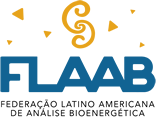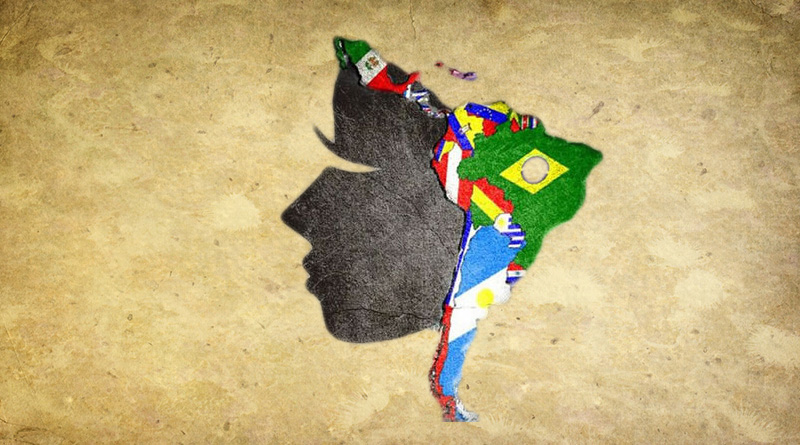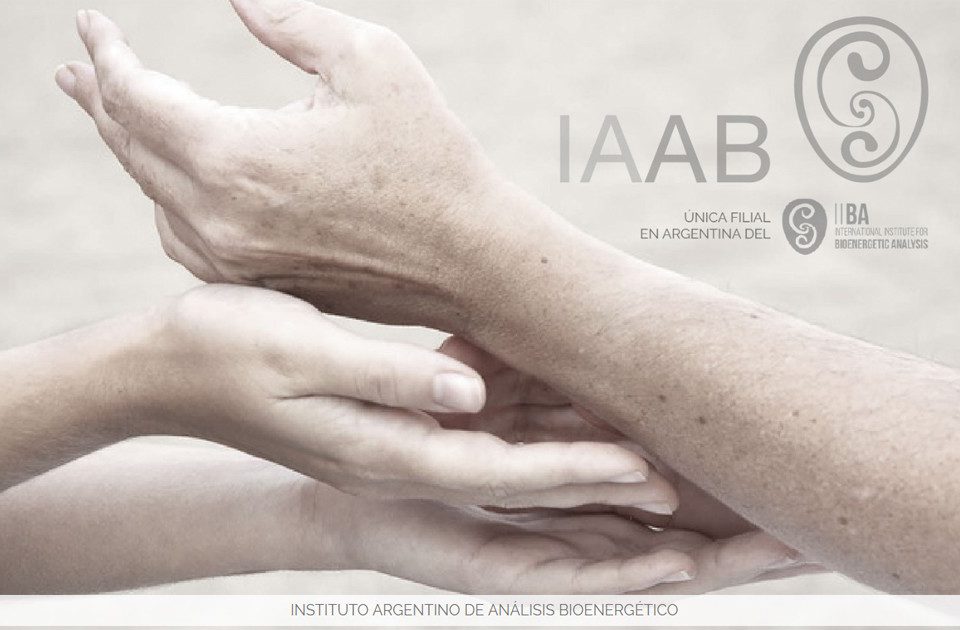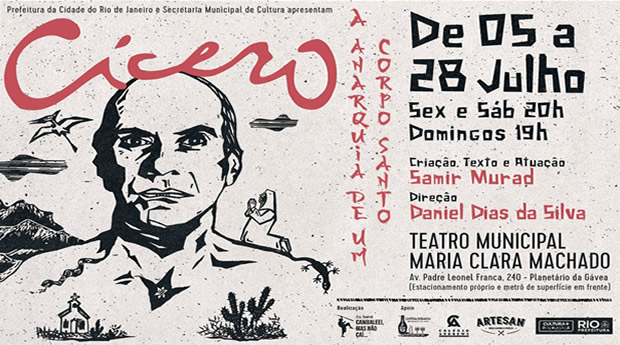Constructing Social Bioenergetic Analysis in Latin America
A Sexualidade e o Corpo
7 de julio de 2016Construyendo La Bioenergetica Social en América Latina
11 de julio de 2016The Pan-American Health Organization (known as OPAS/OMS in Brazil) is an international public health institution with over a century of experience dedicated to improving health conditions in the Americas.Its integration with the United Nations occurs when it acts as the regional office of the World Health Organization (WHO) for the Americas. It is also affiliated to the Organization of American States (OAS).
The organization has an important role in the improvement of public health policies and services through the transfer of technology and the dissemination of knowledge accumulated from studies undertaken in member countries.This requires a level of international co-operation between technicians and scientists specialized in epidemiology, environmental health, human resources, communications, services,thecontrol of zoonotic diseases, medication and the promotion of health.
Popular practices closely related to the natural world became associated with the 1960’s counter-culture lifestyle at the same time as the popularity of alternative medicine grew in opposition to self-care and the debate about medicalization gained force.
The principle of integrated medicine is to construct an inclusive paradigm, to bring in what is different.
In the 1970’s what had been termed ‘popular’ came to be called ‘alternative’.
In the 1980’s ‘alternative’ became known as ‘complementary’.
In the 2000’s the integrative concept aims to include these practices in mainstream medicine.
The WHO had already begun to encourage the use of traditional and complementary or alternative medicine in the 1970’s following the Alma-Ata Conference (International Conference on Primary Health Care (PHC),Almaty, Kazakhstan, September 1978), and this culminated in Brazil in the promulgation and of the Alternative and Complementary Practices Policy which was inserted into the National Health Policy in 2006.Numerous other WHO member countries have also sought to increase the use of these health care practices.
Theoretical criteria for the inclusion of practices into national policy:
-
Studies of the medical rationale including morphology, worldview and therapeutic systems.
-
The involvement of a new professional approach.
-
Differentiated time and listening requirements.
-
A new acceptance of suffering.
-
A reduction in the consumption of medication.
The provision of primary care for our survival.
The combination of integrated practices and primary care is a Brazilian model which is being copied in other countries.
With the publication in May 2006 of the Alternative and Complementary Practices Policy,the Brazilian Health Ministry took an important step towards increasing the plurality of health services in the country.
Bioenergetic analysis (BA) has already starting been included on the lists of integrative and complementary practices in some states, which demonstrates both its preventive and a curative effectiveness.
These are some of the social projects undertaken by societies affiliated to the Latin American Association of Bioenergetic Analysis (FLAAB):
ARGENTINIAN INSTITUTE OF BIOENERGETIC ANALYSIS(IAAB)
Our main purpose was to get Bioenergetic Analysis out of the clinical approach and to find other ways to reach the social community.
BIOENERGETICS AT HOSPITALS
-
During three years, from 2012 up to 2014, we held body work groups at Udaondo Hospital from Buenos Aires.
The participants were cancer patients (some of them in a terminal phase) and their families; medical doctors; nurses and administrative staff.
The course was organized by the Chief of the Mental Health Department. She is a CBT from the Argentine Society.
The work showed very good results in everyone. We are planning to re open it this year 2016.
-
We are organizing a course about Stress Management and Bioenergetic Analysis for medical doctors of the Public System at a Buenos Aires Hospital.
The course will be a twelve-class course, with theory about bioenergetic’s basis and body work. We are planning to give this course twice per year. It will begin april 2016.
The course will be take place at the facilities of Rivadavia Hospital. We have also been invited to run a research about this topic. We have to decide if this will be possible for the crew working in this project.
BIOENERGETIC ANALYSIS INSTITUTE OF WEST CENTRAL BRAZIL (VIBRARE) – BRASILIA
Social Clinic
The VIBRARE social clinic began its work in 2014, following the example of other bioenergetic analysis societies Brazil.
Its aim is to contribute to people’s physical, mental and emotional health and to extend access to psychotherapy in and around the capital to sections of the population with limited financial resources.
The service is available to anyone who can prove a family income of less than three times the minimum salary.
The therapeutic process lasts six months with the possibility of extending this period, if the professional responsible so requests.
Stages:
-
Arrangeaninitialconsultation;
-
Provideproofofincome;
-
Define fees and the terms of the therapeutic contract and clarify the rules which apply to the social clinic.
LIBERTAS SOCIAL CLINIC – RECIFE
Libertas training clinic, which was established 33 years ago, undertakes activities in the clinical, educational and organizational areas. The social clinic opened about 25 years ago for work experience programs in Gestalt therapy from the Recife Psychology Faculty under the supervision of Lucina Araújo.
When the LIBERTAS team began its course in bioenergetic analysis, they found that there was a greater identification with this approach and it has become the principal basis of its work.
The application of bioenergetic analysis in the social clinic.
The aim of the social clinic is to give less privileged sections of society, including children and adolescents, the opportunity to access the various applications of both individual and group psychotherapy. At the moment this service, which is primarily based on bioenergetic analysis, is being expanded with a focus on prevention and the preservation of bio-psychosocial health.
The work extends to pregnant women, families, institutions, schools and communities with guidance programs and the promotion of holistic health.
Bioenergetic exercises are generally included as this helps people to deal with the demands of modern life and stay rooted and centered and live in a healthier manner.
The service is publicized by word of mouth, using pamphlets and in the local press by clients, trainees, psychology courses, neighborhood associations and local businesses.
Between 2005 and 2015, 5167 people were treated and currently there are 23 psychologists working with 100 clients.
When the program began most of the demand came from students, domestic workers, doormen and others who earned roughly a minimum salary. As the economic, financial and social crisis in Brazil at the time became worse, this profile began to change and people who had not previously been included, such as public sector employees, bank staff, teachers and other professionals sought out the service.
The psychotherapy sessions are weekly and clients pay a fee which is established at the first session according to their financial means.
Other services:
Family psychotherapy, community bioenergetic analysis and interventions in potentially traumatic situations such as emergencies, disasters and natural catastrophes.
Covenant with the Justice Department
The social clinic has an agreement with the Justice Department to work with offenders who were given alternative sentences. These people are referred to the training clinic and are supervised by one of the psychologists.
RIO DE JANEIRO SOCIETY OF BIOENERGETIC ANALYSIS (SABERJ)
The clinical board of SABERJ is responsible for the co-ordination of its social clinic, which aims to serve the community as far as it is financially possible, to exercise citizenship and to develop training projects for community work.
One part of the social clinic is the ‘clinicaescola’ (training clinic) as the space where trainee therapists can work under supervision from the screening to the conclusion of the course is known. The therapeutic work undertaken by the students aims both to serve the community and permit the supervision of clinical practice in bioenergetic analysis during the therapist’s training.
The society’s building has a room intended for this type of work. When a student graduates the client can continue with his/her therapist if they both agree to this.
The social clinic receives an average of 10-12 requests for therapy every month. If there are not enough trainees to deal with the demand, requests are referred to members of the society who make themselves available for social service.
CLINIC OF SOBAB-SP – BRAZILIAN SOCITY OF BIOENERGETIC ANALYSISSÃO PAULO
The clinic of the SOBAB called “Life in Movement” was created in 1995.
It differs from a school clinic because its members are specialized in Bioenergetic Analysis or are taking the specialization in the area. All professionals are members of the International Institute of Bioenergetic Analysis (IIBA).
Its field covers the therapeutic attendance, institutional actions and interventions, as well as projects that expand the meaning of the clinic action.
It covers solicitations of the cities of São Paulo, Santos, Campinas and surrounded areas.
Formsofassistances:
-
Individual and in Group psychology (children, adolescents, adults, couples, educators, pregnant women, third age).
-
Group of Movement (GM) free of charge. It’san outdoor activity.
-
Group of Movement (GM) in SOBAB, with weekly meetings, charged.
-
Groupoffreethemes.
-
InstitutionalAnalysisandIntervention.
Procedures to request therapeutic attendance:
The therapy requests of patients via website or recommended by other people.
Fill in the registration form and send it to the professional members of the clinic.
Projects
Throughout the years, in addition to courses, workshops and conferences, the following projects have been developed.
2015 . Free classes in SOBAB of Group of Movement to disclose the project
. Group of Movement in Sobab, every week, charged.
. Conferences with professional guests linked to the body therapies.
. Group with the theme: “Talking about aging”.
. Study about Group of Therapy in Bioenegetic Analysis.
. Cases studies about patients assisted by members of the clinic.
2014 . Project execution about itinerant Groups of Movement in the parks in São Paulo
. Implementation of the case study of the patients assisted by the members of the clinic
2013: Project elaboration about itinerant Groups of Movement in the parks in São Paulo
2010: Project with deaf children changes of ONG BRASCRI
2011: Obesity Project
2001-2003:Juruá project with ONG Abaçai.
2003: Helen Keller School project
1999-2003: Senior Project (third age)
2002: Project SESC- Stress- (20 lectures on related topics)
2001: Parents intervention for the students of São Domingos School
1999: Mental Health project at various universities.
Therapy requests of patients and recommendation to therapist members of the clinic.
From 2009 to 2012 we do not have any information about the number of recommendation to therapist members of the clinic, just requests.
2009: – 15 requests.
2010: – 10 requests.
2011: – 15 requests.
2012: – 16 requests.
2013: – 28 requests and 22 recommendation to therapist members of the clinic.
2014: – 43 requests and 29 recommendation to therapist members of the clinic.
2015: – 45 requests and 28 recommendation to therapist members of the clinic.
In 2014, with the renovation of the clinic website, the number of requests for therapy increased including the surrounded areas, as well as therapy free of charge and therapy requests for family members.
Every single request receives a response on recommendation for public or private clinics, orientation about societies in other cities, and invitations to participate in Internal Group of Movement, or in other institutions.
Currently we have 20 professionals working in the clinic, most of them have graduated on Bioenergetic Analysis, or are close to get graduated. However, the clinic is open for all members of SOBAB. Trainers and students are invited to participate in monthly meetings to cooperate for its development.
SÃO PAULO INSTITUTE OF BIOENERGETIC ANALYSIS (IABSP)
Social Clinic – SAPS
In the midst of the great changes which society is going through, the institute believes in the importance of creating new possibilities for collective action.
With this in mind, a social clinic has been established on a one-year focused therapy model. It serves individuals, groups and institutions as well as developing social projects based on bioenergetic analysis.
The team is made up of psychologists, psychiatrists and other health professionals who are committed to effective clinical practice.
What is it?
SAPS is the department of the institute which aims to take bioenergetic psychotherapy into the community, to children and adolescents and to show them how it can be a valuable tool for self-awareness and growth.
Theoretical/Clinical Basis
A focused therapy model within the theory of bioenergetic analysis.
The therapeutic process is established once a focal point has been agreed upon with the client. Therapeutic bioenergetic exercise techniques together with Lowencharacterology are applied within an analytical perspective. This focused therapy model lasts one year.
Health Professionals
SAPS is also aimed at both qualified and trainee psychotherapists as it provides them with an opportunity to work within a variety of social strata thus broadening the scope of their work and clinical experience. Group supervision is carried out by professionals from the institute on the operative group basis proposed by the Argentine psychoanalyst Hector Fiorini.
Other projects: My body and me.
The body as a tool with psychiatric patients.
This project began in 2010, originally at the Psychosocial Services Center (CAPS) in Itaim and more recently at the centre in Lapa. It tries to promote bioenergetic body consciousness for patients with serious long term mental conditions who require both medication and multi-disciplinary treatment, including both men and women from a wide range of socio-cultural and economic backgrounds. The aim of the project is to use bioenergetic body techniques with groups, leading the participants into a process of body consciousness and sensibility in order to improve their self perception, alleviate the effects of medication, promote energy balance and recover self esteem, thereby helping the process of self construction.
Lucia Magano, the founder of the project, qualified in 2000 and is an IABSP teacher and a co-ordinator and supervisor of the SAPS social clinic.
How it works.
The clients go through an initial psychological and socio-economic screening process and their availability in terms of both time and location is taken into account. On the basis of these factors they are referred to the office of one of the institute’s therapists.
The therapy lasts a year, but may be extended if necessary, with weekly 50-minute sessions.
Fees vary according to per capita family income.
*All information concerning the work by societieswere reported by them.
Cristina Piauhy





